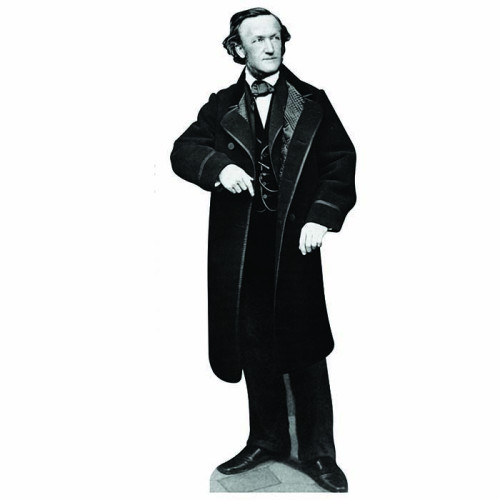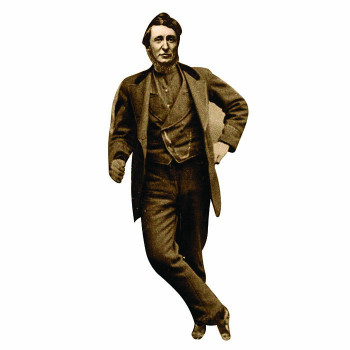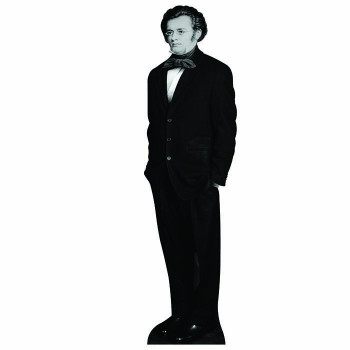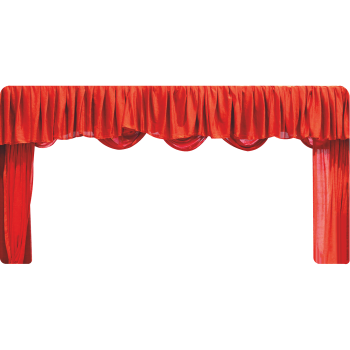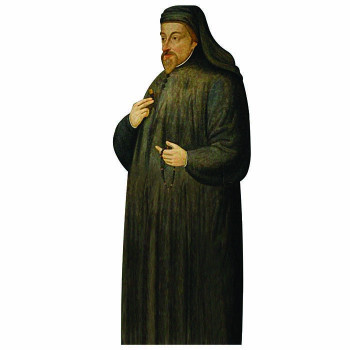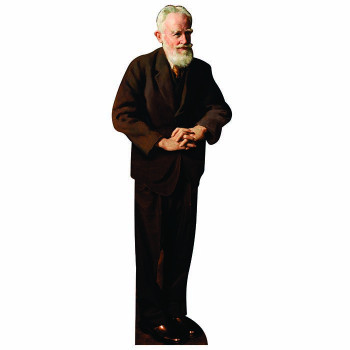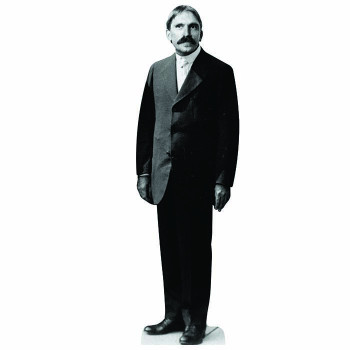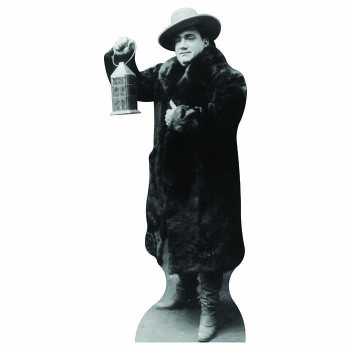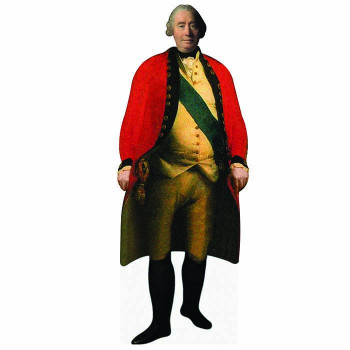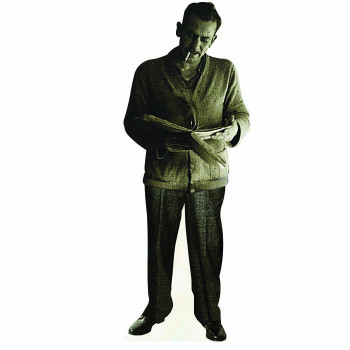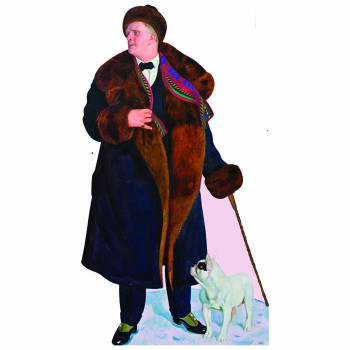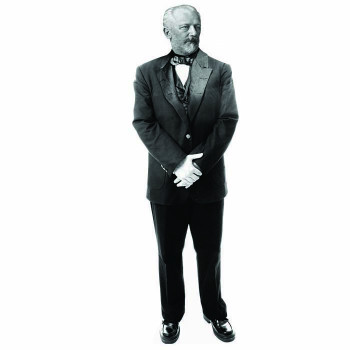RICHARD WAGNER CARDBOARD CUTOUT
-
$0.00
Available Options
65 x 25 inches. Our cardboard cutout of Richard Wagner. All cardboard cutouts come folded and have an easel attached to the back to be self-standing. Items are printed and produced to order. Printing and processing takes up to 5 business days plus shipping time.
Introduction to Richard Wagner
Celebrate the legacy of one of the most influential and controversial composers in the history of Western music with our lifesize cardboard cutout of Richard Wagner. Perfect for musical displays, educational events, or as an inspiring addition to your home or office, this cutout captures the powerful and dynamic presence of Richard Wagner, reflecting his profound impact on opera and classical music.
Background of Richard Wagner
Richard Wagner was born on May 22, 1813, in Leipzig, Germany. He was raised in a theatrical family, which influenced his early interest in drama and music. Wagner showed early talent in music composition, despite having a somewhat irregular formal education. He attended the University of Leipzig, where he studied music theory and composition.
Wagner's early career was marked by a series of opera compositions, including "Rienzi" (1842) and "The Flying Dutchman" (1843), which began to establish his reputation. However, it was his later works, such as "Tannhäuser" (1845), "Lohengrin" (1850), and the monumental "Der Ring des Nibelungen" (The Ring of the Nibelung) cycle, that solidified his place in the pantheon of great composers.
The "Ring" cycle, consisting of four epic operas—"Das Rheingold," "Die Walküre," "Siegfried," and "Götterdämmerung"—is one of Wagner's most ambitious and enduring achievements. This massive work, inspired by Germanic and Norse mythology, showcases his revolutionary approach to opera, which he termed "Gesamtkunstwerk" (total work of art). This concept integrated music, poetry, drama, and visual elements into a cohesive whole.
Wagner's influence extended beyond his compositions. He was also a prolific writer, producing essays and treatises on music, art, and society. His ideas on opera and music drama profoundly influenced the development of Western classical music. His operas are known for their complex harmonies, innovative use of leitmotifs (recurring musical themes associated with characters or ideas), and profound emotional depth.
Despite his musical genius, Wagner's life was marked by personal and political controversies. He was known for his complex relationships, financial struggles, and outspoken political views. His anti-Semitic writings have marred his legacy, and his music was later appropriated by the Nazi regime, further complicating his historical reputation.
Wagner spent his final years in Bayreuth, Germany, where he built the Bayreuth Festspielhaus, a theater specifically designed for the performance of his operas. He passed away on February 13, 1883, in Venice, Italy.
Cultural Impact of Richard Wagner
Richard Wagner's impact on opera and classical music is profound and far-reaching. His revolutionary approach to opera, characterized by the integration of music, drama, and visual elements, transformed the art form and set new standards for musical and theatrical production.
Wagner's concept of the "Gesamtkunstwerk" influenced not only his contemporaries but also future generations of composers, directors, and artists. His use of leitmotifs to represent characters, themes, and ideas became a fundamental technique in operatic composition, influencing composers such as Richard Strauss, Gustav Mahler, and even film composers like John Williams.
The "Ring" cycle remains one of the most significant and ambitious works in the operatic repertoire. Its complex narrative, rich orchestration, and profound exploration of human and mythological themes continue to captivate audiences and challenge performers. The Bayreuth Festival, founded by Wagner in 1876, continues to be a major cultural event, attracting Wagner enthusiasts from around the world.
Wagner's influence extends beyond music to literature, philosophy, and the visual arts. His operas and writings inspired numerous artists and thinkers, including Friedrich Nietzsche, who was initially an ardent supporter before becoming a critic. The dramatic and emotional intensity of Wagner's works have also left a lasting mark on modernist literature and theater.
However, Wagner's legacy is also marked by controversy. His anti-Semitic views and the later appropriation of his music by the Nazi regime have led to significant ethical and historical debates. These aspects of his life and legacy complicate his reception and interpretation, prompting ongoing discussions about the relationship between art and the artist's personal beliefs.
This cutout of Richard Wagner celebrates his remarkable contributions and enduring legacy as a master composer. It serves as a tribute to his musical brilliance, his impact on the development of opera, and his significant role in shaping the cultural heritage of classical music.
- Brand: Historical Cutouts
- Product Code:H79101
- Availability:In Stock
LEARN MORE ABOUT OUR AVAILABLE MATERIALS

LIFE SIZE HISTORICAL CUTOUTS
We have been the leading historical based cutout supplier for nearly 10 years. We have worked with many schools, museums, and colleges across the country to provide stunning graphics from hsitory. Historical Cutouts are available in 3 materials and come contour cut with an easel to be self standing. Click below to learn more about each material and our cutout process.
Learn More
LIFE SIZE HISTORICAL WALL DECALS
All of our historical figures are available as a life size wall decals. Vinyl wall decal orders come ready to apply with squeegie and instructions. Having trouble? Check out our how to youtube video. Our graphics are printed on tear resistant PhotoTex Vinyl using our high definition 4 color plus white printing process.
Learn More
HISTORICAL ACRYLIC CUTOUTS
Desktop Legends are a smaller version of our life size cutotus printed on 3/16th" acrylic. All of our historical cutouts are also available as a desktop legend. These acrylic statuettes come in two sizes, 8" and 12". If you would like to learn more please click below.
Learn MoreRELATED PRODUCTS
-
Henry David Thoreau Cardboard Cutout
68 inches. Our cardboard cutout of Henry David Thoreau. All cardboard cutouts come folded and have a..
Franz Schubert Cardboard Cutout
62 x 17 inches. Our cardboard cutout of Franz Schubert. All cardboard cutouts come folded and have a..
Wide Theater Red Curtain Stage Puppet Show Stand In Cardboard Cutout Standee Standup
90x46 inch cardboard cutout of a wide theater red curtain backdrop for special themed photos, or you..
Geoffrey Chaucer Cardboard Cutout
64 x 26 inches. Our cardboard cutout of Geoffrey Chaucer. All cardboard cutouts come folded and have..
George Bernard Shaw Cardboard Cutout
68 x 24 inches. Our cardboard cutout of George Bernard Shaw. All cardboard cutouts come folded and h..
John Dewey Cardboard Cutout
66 x 20 inches. Our cardboard cutout of John Dewey. All cardboard cutouts come folded and have an ea..
Enrico Caruso Cardboard Cutout
68 inches. Our cardboard cutout of Enrico Caruso. All cardboard cutouts come folded and have an ease..
David Hume Cardboard Cutout
67 x 26 inches. Our cardboard cutout of David Hume. All cardboard cutouts come folded and have an ea..
Titan of Space and Time Super Hero Cardboard Cutout Standee Standup
Cardboard cutout of our Titan of Space and Time Super Hero. Dimensions are 72x34 inches...
John Steinbeck Cardboard Cutout
72 x 27 inches. Our cardboard cutout of John Steinbeck. All cardboard cutouts come folded and have a..
Feodor Chaliapin Cardboard Cutout
69 inches. Our cardboard cutout of Feodor Chaliapin. All cardboard cutouts come folded and have an e..
Pyotr Ilyich Tchaikovsky Cardboard Cutout
66 x 20 inches. Our cardboard cutout of Pyotr Ilyich Tchaikovsky. All cardboard cutouts come folded ..

